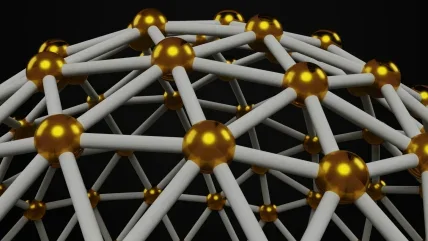
Table 1: Chemical resistance

With its new glass-fibre reinforced Rilsan MED GF Polyamide 11, Arkema offers the medical market an advanced polymer that meets all the mechanical, thermal and chemical requirements traditional metal surgical tools demand. In addition to this, medical device manufacturers can lower their carbon footprint by switching from a metal device to one made with Arkema’s Rilsan MED GF Polyamide 11. Some other attributes include:
“Arkema’s advanced bio-circular materials have a long-proven legacy in some of the world’s most demanding applications.”
- biocompatible, USP Class VI and ISO 10993 approved
- super-high stiffness for replacing metal
- significantly lighter than similar stainless tools
- repeatedly sterilisable via autoclave, Gamma and EtO
- strong resistance to most chemical agents used in bioprocessing
- bio-based from castor beans
- 100% recyclable via Arkema’s Virtucycle programme
- high-quality surface finishes
Sustainable raw materials for a sustainable polymer
Arkema’s advanced bio-circular materials have a long-proven legacy in some of the world’s most demanding applications. These bio-based, recyclable polymers are derived from Arkema’s flagship amino-11 chemistry, which in turn, is derived from the oil of the renewable castor bean. Consequently, the Polyamide 11 used to produce this material comprises more than 98% bio-based carbon, according to ASTM 6866 (full life cycle assessment available on demand).
Castor beans mainly originate in India where they can benefit from the natural monsoon phenomenon. They do not compete directly with the food chain. Castor beans are grown only in the poorest soils and they do not cause deforestation, all while remaining profitable for the farmers. To strengthen its commitment to more sustainable castor farming, Arkema has launched the PRAGATI initiative with its partners, designed to support the Indian farmers to improve their agricultural practices, water management and to enable better health and safety while respecting human rights
Best in class performances for metal replacement
Formulated with a high content of glass fibres, this new Rilsan MED GF PA 11 displays a tensile modulus of 19 GPa and a flexural modulus of 18.5 GPa, making it a perfect fit to replace metal for the production of highly demanding surgical tools. Compared to other reinforced high-performance polymers used for the manufacture of surgical tools, Rilsan MED GF PA 11 requires lower mould temperatures and injection pressures. These properties enabled early adopters to switch materials extremely easily and to decrease their cycle times significantly while maintaining component integrity.
Furthermore, this new Rilsan MED GF PA 11 exhibits excellent chemical resistance: Results in table 1 demonstrate the qualitative performance of chemical resistance based on surface aspect (the appearance of cracks) and coloration. Environmental stress-cracking resistance tests were performed using elliptical Bergen Jug, which applied a range of strains to a single bar and injected plates immersed into the indicated chemical agent at 23°C for 24 hours. Table 2 shows also excellent sterilisation resistance opening new doorways and opportunities for the development of sustainable reusable surgical tools and for the replacement of petroleumbased polymers.
Table 2: Sterilisation resistance

“Arkema has launched the PRAGATI initiative with its partners, designed to support the Indian farmers to improve their agricultural practices, water management and to enable better health and safety while respecting human rights”
Finally, the biocompatibility of this new product has been successfully assessed according to USP Class VI, ISO 10993-4, ISO 10993-5 and ISO 10993-10 standards.
Endless possibilities for the end of life
Companies in every sector must do their part to help avoid the worsening climate crisis. With the end of life of its products in mind, Arkema has invested in recycling capabilities, and more specifically in mechanical recycling capabilities as being the most environmentally efficient process. Mechanical recycling decreases the climate change impact of its Rilsan Polyamide 11 by roughly 70% compared to non-recycled Rilsan Polyamide 11 (kg eq. CO2/kg according to ISO 14040 standard; 100% recycled vs. virgin material), which climate change impact is already more than 40% lower than a traditional petroleum based Polyamide 12.
Arkema has been working with partners to either recycle those polymers into close loops, to be used again by the same customer or industry, or in open loops, meaning by different customers or industries who wish to purchase postconsumer materials.






